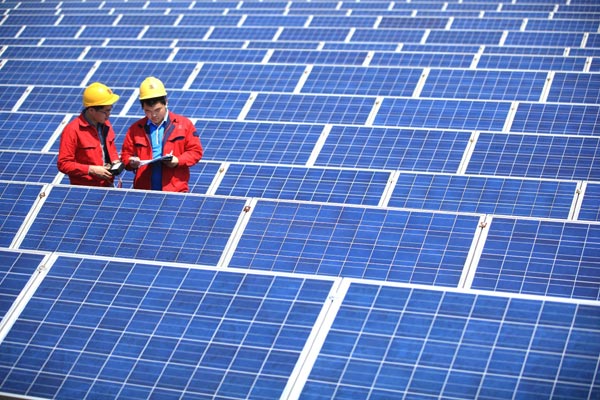 |
|
Technicians check solar panels at a textile company in Jimo, Shandong province. [Photo/China daily] |
Photovoltaics, tires, smartphones and wind turbines may encounter friction
Trade remedy measures against high-tech and high value-added product exports from China rose significantly in the first six months of the year, despite an overall slowdown in the number and value of trade friction cases.
About 37 trade remedy cases were filed against Chinese companies between January and June, including 32 anti-dumping cases. Fourteen countries and regions, mostly G20 members, initiated investigations against Chinese products, down 30 percent year-on-year, the Ministry of Commerce said on Tuesday.
The United States launched six trade remedy probes against Chinese products in the past six months. Countries from Latin America filed about 14 cases during the period, up 27 percent from the same period a year ago.
Shen Danyang, spokesman for the ministry, said because India and the Eurasian Economic Community focused on investigating cases initiated last year, the number of probes decreased in the first half.
"We noticed that China's high-end products such as photovoltaic products, tires, wind turbines and smartphones had encountered more trade investigations over the past three years," Shen said. "China has been deploying more resources and manpower to enhance its negotiating abilities after several such cases occurred in recent years."
However, the value involved in the probes amounted to $3.5 billion, down 34 percent on a year-on-year basis. Hardware, chemicals and the light industries are the areas that saw the most investigations.
Zhao Ying, a researcher at the Beijing-based institute of industrial economics at the Chinese Academy of Social Sciences, said because China is undergoing an industrial upgrading, the nation is capable of exporting more high-tech or high value-added products to the global markets. But such a change has affected the market share of high-end products manufactured by developed nations.
The developed countries would naturally impose trade investigations on Chinese products to protect their global market share.
"After all, high-tech products can generate more profits, when compared with garments, footwear and other low-end products that China used to manufacture," Zhao said.
Trade disputes extended into sectors like hardware, food, pharmaceuticals and mining products in 2014. China's trading partners including the US, Canada and Australia launched 27 cases involving $2.32 billion against China's steel exports.
Sang Baichuan, director of the institute of international business at the University of International Business and Economics in Beijing, said that the value of affected exports between January and June "accounted for a larger share in overall exports than the average level over the past decade, showing intensified trade friction involving Chinese products".
"China will continue to face frequent trade frictions and there is no reason to be optimistic about the prospects if we look at the country's international trade environment and the resurgent protectionism in the world," said Sang.
